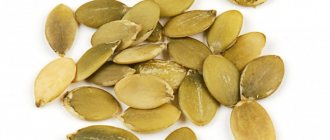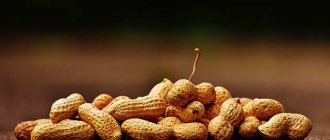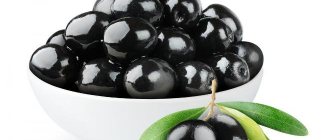Later, in the great empires of the Aztecs and Mayans, the plant was cultivated and found dozens of uses. From the seeds they ground flour for bread, squeezed out oil, made face creams and ointments for snake bites... Helianthus was considered a gift from the gods, and priests offered prayers to it in temples.
In the 16th century, Spanish sailors brought a wonderful plant to Europe. At first it was planted in gardens as an ornamental flower, and only 200 years ago it began to be grown for seeds and oil. Then the “triumphant march” of sunflowers across the planet began - huge fields were planted with them in Russia, the USA, France, Argentina, Canada, China...
Now the annual harvest of sunflower seeds is 45 million tons. Interest in growing sunflowers is growing, and for good reason! Delicious seeds have enormous healing potential, as they contain vitamins, phytosterols, antioxidants and healthy fats. Scientists call the product the most accessible means for the prevention of diabetes, cancer and cardiovascular diseases.
Composition and calorie content
Like all oilseeds, sunflower has a high nutritional value. A quarter glass (about 35 g) is enough to get 200 kcal - the same amount contained in 3 eggs. 100 g of product contains 54 g of fat, 21 g of protein, 21 g of carbohydrates and 9 g of fiber.
In addition, the seeds are saturated with useful substances - their composition is presented in the table.
| Element | Content (per 100 g) | Importance for the body |
| Folic acid | 227 mcg | Forms red blood cells and nerve cells of the fetus, regulates protein-fat metabolism |
| Niacin | 8.335 mg | Ensures normal functioning of the nervous and digestive systems, improves skin condition |
| Pantothenic acid | 1.13 mg | Produces adrenal hormones, regulates the functioning of the nervous system |
| Pyridoxine | 1.345 mg | Accelerates fat metabolism, is responsible for kidney function |
| Riboflavin | 0.355 mg | Produces blood, improves visual acuity |
| Thiamine | 1.48 mg | Regulates metabolism, participates in the production of blood and nerve cells |
| Vitamin A | 50 units | Maintains normal vision, helps immune cells destroy free radicals |
| Ascorbic acid | 1,4 | Helps with iron absorption and hemoglobin production, synthesizes proteins |
| Vitamin E | 5.17 mg | Responsible for reproductive functions, protects cells from free radicals |
| Sodium | 9 mg | Maintains fluid balance and vascular tone |
| Potassium | 645 mg | Ensures the health of the nervous and cardiovascular systems |
| Calcium | 78 mg | Forms tissues of the skeleton, teeth, nails |
| Copper | 1.8 mg | Produces blood cells, distributes iron in tissues |
| Iron | 5.25 mg | Distributes oxygen, produces proteins and enzymes |
| Magnesium | 325 mg | Strengthens bones and teeth, stimulates the nervous system |
| Manganese | 1.95 mg | Regulates sugar and cholesterol levels, produces hormones and nerve cells |
| Phosphorus | 660 mg | Normalizes the functioning of the kidneys, nervous and immune systems |
| Selenium | 53 mcg | Destroys free radicals |
Interestingly, seeds, rich in fat, are completely cholesterol-free, so in moderation they do not cause weight gain.
Benefits of sunflower seeds
The product is useful both for a young growing body and for people in mature and old age to maintain the functioning of the cardiac system and prolong the youth of the body.
Vitamin content of sunflower fruits:
- Nicotinic acid, or vitamin B 3, prevents diseases such as pellagra. This group is also prescribed for patients with diabetes, liver problems and peptic ulcers of the stomach and duodenum. For hypertension, nicotinic acid helps dilate blood vessels and normalize blood pressure.
- Tocopherol acetate (Vitamin E). Slows down oxidative processes in a living organism. Prevents capillary fragility, stops degenerative processes in the muscular system of the heart. Helps in cases of sexual dysfunction of the glands in men. Particularly effective in the treatment of skin diseases (psoriasis).
- Pyridoxine or vitamin B6 has a positive effect on metabolic processes. The central and peripheral nervous systems recover faster from stress and injury. The daily intake of sunflower seeds is enough to prevent lipid deposition, since B6 accelerates fat metabolism, even with atherosclerosis.
- Magnesium, potassium and zinc are the main elements for the smooth functioning of the body’s cell membranes. The amount of these chemical elements in seeds is quite sufficient for proper metabolism at the lowest cellular level. With their help, the body's cells correctly exchange gases and nutrients. Their use has a positive effect on the functioning of the heart muscle and the hematopoietic system as a whole (red bone marrow).
Interesting: The benefits and harms of oatmeal jelly for the human body, as well as a recipe for cooking
Which is healthier - raw or fried?
It is customary to roast sunflower seeds directly in the husk - this treatment enhances the aroma and improves the texture. But, since heating destroys some of the vitamins, nutritionists advise eating the seeds raw.
There is an important “but” here - raw grains contain 18 kcal more than fried ones. Plus, not everyone likes the taste of raw sunflower seeds. The problem can be solved by adding seeds to salads, omelettes and baked goods, and mixing with cereals and porridge.
The seeds will retain maximum benefits if you fry them in a dry frying pan without salt or in the oven. Oil and salt when frying are very harmful - they turn a valuable product into a serious threat to the kidneys and blood vessels.
Useful properties and applications
The beneficial effects of seeds on the body are explained, first of all, by the high content of tocopherol - vitamin E. By neutralizing free radicals, this antioxidant protects cell membranes from destruction. Vitamin E relieves inflammation and reduces the symptoms of rheumatism, arthritis, asthma, and reduces the risk of colon cancer.
Sunflower grains contain a lot of phytosterols - cholesterol neutralizers. In combination with vitamin E, they cleanse the artery walls of cholesterol plaques. This prevents blockage of blood vessels and prevents such serious diseases as atherosclerosis and stroke.
Magnesium contained in the seeds calms the nerves, lowers blood pressure and helps get rid of migraines. By protecting tissues and blood vessels from calcium deposits, magnesium relieves muscle pain, shortness of breath, and fatigue.
Another active element of sunflower grains is selenium, an effective protector of the human body from cancer. This trace element restores DNA in damaged cells and removes toxins from the liver that cause tumor growth.
Folk recipes
An assistant for... weight loss?
Sunflower seeds are high in fat, but they may help with weight loss. Their higher energy value may seem like a problem at first glance, but it is not.
They can be consumed while on a diet 3-4 times a week, 1-2 tsp added to food. Enrich them in fruit or vegetable salads, cottage cheese, yogurt, risotto, meat, rice or potato dishes...
Phytosterols to Support Healthy Cholesterol Levels
Sunflower seeds contain large amounts of phytosterols, which have cholesterol-like physical properties. They help increase healthy cholesterol levels in the blood. For this, traditional medicine recommends using either 1/2 tbsp. product per day, or a decoction of immature seeds.
Decoction
Boil 1/2 kg of unripe raw materials in 2 liters of water for 2 hours. Strain. Drink throughout the day. The therapeutic course is 2 weeks, after which you should take a break (5 days) and repeat the course.
Hypertension
To reduce high blood pressure, a decoction prepared according to the above recipe is recommended. You can also use mature seeds for this, but they must be fresh. Dosage: 100-150 ml daily. The therapeutic course is similar, the number of its repetitions depends on the state of hypertension.
Diabetes
Sunflower seeds are well tolerated by diabetics and have the right to be present in their diet. Active substances help stabilize glycemia. However, if you have diabetes, it is better to give preference to a dried product over a fried one. It is also important to keep the amount consumed to no more than 1 tbsp. in a day.
Heartburn
When used for heartburn, sunflower seeds can bring both benefit and harm. Their use is not recommended if the problem is caused by:
- overeating;
- physical activity after meals;
- obesity.
In these conditions, they can aggravate the burning sensation.
You can use the product as a natural medicine if heartburn is a concomitant manifestation of the following conditions:
- pregnancy;
- violation of contractions of the lower esophageal sphincter;
- gastritis;
- ulcer.
The cause of heartburn is hydrochloric acid, which causes discomfort when it refluxes (returns to the esophagus). Sunflower seeds bind it, preventing it from returning. Recommended amount consumed – 1 tbsp. in a day.
Relief occurs after the first or second dose and is long-lasting. It is advisable to continue treatment for several more days after the discomfort disappears.
Constipation
The high percentage of dietary fiber (fiber) in sunflower seeds makes them an excellent remedy for constipation. Fatty acids also help ease bowel movements. For therapeutic purposes, it is recommended to eat 1 tbsp. product per day. The duration of the course is individual, unlimited.
Intestinal parasites
To get rid of worms, lightly roasted sunflower seeds (may be with salt) are used. Recommended amount – 1/2 -1 tbsp. per day (if there is no tendency to be overweight, it can be increased to 1-2 tbsp). Therapeutic course – 2 weeks. Break – 4-5 days.
Article for you:
Melon seeds: beneficial properties and use in folk medicine
During the break, it is necessary to conduct research that will show the effectiveness of the treatment. If necessary, you can repeat the course.
Healthy fats
Sunflower seeds have an extremely high fat content and are a major source of polyunsaturated and monounsaturated fatty acids. Both types of fats are great for improving overall health.
Anti-inflammatory effect
Vitamin E, a fat-soluble antioxidant, neutralizes the effects of free radicals, which prevents damage to fat structures and molecules. Anti-inflammatory properties of sunflower seeds include relief of symptoms of asthma, osteoarthritis and rheumatoid arthritis.
Reducing the risk of cancer
Sunflower seeds stimulate immune responses, reducing the risk of certain types of cancer. Vitamin E and high fiber content reduce the likelihood of colorectal cancer. Selenium restores cell structure and promotes the synthesis of damaged DNA cells, prevents the proliferation of cancer cells, and supports automatic detection of abnormal cells.
Calming the nerves
Sunflower seeds have the ability to calm the nerves, relieve stress and relieve migraines. Magnesium, balancing calcium, regulates nerve and muscle tone, prevents calcium from entering nerve cells and activates it. This helps keep your nerves relaxed.
Bone Health
Sunflower seeds contain minerals—calcium, copper, and magnesium—that prevent loss of bone mineral density. The vitamin E present in them relieves pain caused by arthritis. Copper promotes the binding of collagen and elastin, which is important for the strength and flexibility of joints and bones.
Skin health
Regular consumption of sunflower seeds ensures healthy looking skin, maintains its youth and beauty, and minimizes exposure to UV rays. The copper they contain is necessary for the production of melanin, the pigment that determines skin color.
Nutrients prevent the formation of scars and fine wrinkles. Fatty acids - palmitic, oleic and linoleic - promote the formation of collagen and elastin, which makes the skin soft and smooth.
Cardiovascular Support
Sunflower seeds contain 2 nutrients that support the cardiovascular system - vitamin E and folic acid.
1/4 cup of the product contains more than 60% of the daily dose of vitamin E. It has important antioxidant function, helping to neutralize free radicals, preventing swelling of the brain and cell membranes, and its balanced levels are associated with a lower risk of death from cardiovascular disease. Folic acid supports the cardiovascular system from birth to old age. It metabolizes homocysteine, an indicator of cardiovascular problems, into methionine, an essential amino acid.
Is it possible during pregnancy and lactation?
Ancient superstitions say that a woman “in an interesting position” should not bite sunflower seeds. Contrary to superstitions, doctors recommend that expectant mothers not give up their favorite product and consume 30-50 g of delicious grains daily.
Here are 6 benefits of seeds for a pregnant woman and child:
- Prevent nausea and constipation.
- Enriching the body with vitamins, proteins, minerals and polyunsaturated fats.
- Increasing the elasticity of blood vessels and protecting against blood clots.
- Strengthening fetal bones with phosphorus and calcium.
- Normalization of blood pressure due to the potassium contained in the seeds.
- Strengthening the immune system with the help of phytosterols.
In order for the seeds to have a healing effect, they must be consumed raw, peeled with your hands and lightly dried in a frying pan.
Seeds are also useful for a nursing mother, but you should check whether they will cause allergies or constipation in the child. To do this, in the first three days you need to eat 20 g of seeds. If there are no problems, the portion can be increased to 100 g per day. Salted seeds are not recommended, as salt retains fluid in the body. This causes increased blood pressure and swelling, and reduces milk production.
Sunflower seeds - harm
The seeds of the inflorescence cannot be perceived as a harmless product. The fruits are quite high in calories, containing about 600 calories per 100 grams of product. According to this indicator, it is even ahead of chocolate, fatty meat and muffins. Of course, in the absence of contraindications, you cannot completely abandon their use, but each product has its own norm, which is beneficially absorbed and helps the body. For an adult healthy person it is 50 grams.
It is worth remembering that cracking the husks with your teeth will result in cracks in the enamel and deposits of stones with the subsequent development of caries. Therefore, it is recommended to clean by hand or buy a product that has already been cleaned.
Eating fried fruits with added salt may cause symptoms of hypertension (due to large amounts of salt entering the blood) and swelling.
When you should not eat seeds:
- A person suffering from cholelithiasis should avoid consuming this product. The thing is that they produce increased production of bile, thereby aggravating the symptoms of the disease.
- Sunflower irritates the gastric mucosa with which it is lined, so patients with gastritis are advised not to take this product.
- Obese people should be aware of the amount of fat in the seeds, which is almost 80 percent. Of course, seeds can have a positive effect on metabolic processes, but this works when a person’s body mass index is within the normal range.
Interesting: The medicinal properties of aloe, recipes, and all about the benefits and harms to human health
Scientists and doctors do not in any way connect the consumption of seeds and appendix disease, so you should not refuse the product if you have concerns about this. There are also no contraindications for women during pregnancy or patients with atherosclerosis. Patients with diabetes are allowed to pamper themselves with sunflower seeds, since the magnesium contained in them regulates the state of insulin in the blood and prevents its imbalance.
For men's health
Sunflower grains supply the male body with zinc and magnesium, the most important elements for male fertility. Zinc preserves sperm viability, and magnesium dilates blood vessels, increasing potency.
Sunflower is the leader among oilseeds in terms of the volume of polyunsaturated fatty acids. For men, these fats are of particular importance - they increase the level of dopamine, which causes sexual arousal. Vitamin E and phytosterols contained in the seeds also enhance the production of sex hormones.
Health effects
The benefits of sunflower seeds for the body extend to most organs and systems.
Main beneficial effects:
- support of the body's defenses;
- strong antiseptic effects;
- digestive support;
- acceleration of metabolism;
- improve bowel movements;
- detoxification of the digestive tract;
- cancer prevention;
- prevention of diabetes development and compensation of the disease;
- preventing the development of cardiovascular diseases;
- reducing high cholesterol levels;
- reducing high blood pressure;
- calming the nervous system;
- support concentration and memory;
- improving the quality of skin, hair and nails;
- treatment of skin diseases, acceleration of healing of wounds and injuries;
- prevention of osteoporosis;
- strengthening joints and bones.
Article for you:
Medicinal properties of sprouted oats and its use in folk medicine
Positive effects on the body of specific substances:
- Vitamin E and selenium are among the antioxidants. Neutralize free radicals, slow down the aging process and prevent vascular degeneration. Vitamin E regulates platelet adhesion, which reduces the risk of blood clots and heart attacks.
- Vitamin B1 is responsible for calming nerves, reducing blood pressure, and conditioning the skin and mucous membranes.
- Vitamin B6 is essential for metabolic processes and reducing the risk of depression.
- Magnesium balances calcium levels in the body and helps regulate nerve activity.
- Potassium plays a vital role in the human body by balancing the effects of sodium.
- Tryptophan amino acid promotes the production of serotonin and therefore improves mood.
- Omega-6 polyunsaturated fatty acids help lower blood cholesterol levels and thereby prevent the development of arteriosclerosis.
- Iron is an integral part of hemoglobin, a component of red blood cells. It plays a big role in the state of the immune system and is necessary for the health and strength of the muscular system.
- Phosphorus is important for creating and maintaining strong and healthy bones and teeth.
- Pantothenic acid ensures healthy skin.
- Manganese supports nerve health and is a depression fighter. It is a catalyst for the synthesis of fatty acids and cholesterol and promotes the metabolism of proteins and carbohydrates.
For children: benefits and harms
Sunflower seeds are one of the few foods that children like and at the same time improve their health. Eating seeds provides 5 beneficial effects for the child’s body:
- Stimulates digestion. Fiber speeds up the movement of food in the intestines and the removal of toxins.
- Normal sleep. Tryptophan contained in sunflower seeds produces serotonin and melatonin, which calm the brain and eliminate insomnia.
- Accelerated growth. Essential acids contained in seeds improve metabolism and stimulate muscle growth.
- Relieving inflammation. Vitamin E prevents seasonal colds, flu, sore throat, and bronchitis.
- Prevention of anemia. Sunflower seeds are rich in iron, which produces red blood cells.
However, the product should be introduced into children's diets with caution. Seeds are prohibited for children under 4 years of age, as they are easy to choke on. For children from 5 to 15 years old there are 2 contraindications - allergies and gastrointestinal diseases. Parents should also ensure that the child does not swallow grains with husks - they often provoke appendicitis.
Use for various diseases
Vitamins, antioxidants and polyunsaturated fatty acids make sunflower seeds not only a preventive, but also a medicinal product. It is used to prepare decoctions to lower blood pressure, cough mixtures, and is used as a tonic after operations and injuries. But each chronic disease has its own product dosages and contraindications.
For diabetes
The unique combination of copper, vitamins, magnesium and zinc in sunflower grains is a real healing elixir against diabetes. But the main advantage is that the seeds contain practically no carbohydrates, but a lot of polyunsaturated fatty acids. Healthy fats break down bad cholesterol and improve the functioning of blood vessels, and B vitamins relieve nervous stress. As a result, blood sugar levels decrease. Patients with diabetes can safely eat seeds - raw, unsalted, but not more than 35 g per day.
For pancreatitis
People with chronic inflammation of the pancreas have to exclude fatty and fiber-rich foods from their diet. Seeds also belong to this category, but they contain substances that can significantly improve the patient’s condition.
Vitamins B and E block free radicals and prevent damage to pancreatic cells, while linoleic acid relieves inflammation and repairs tissue. Therefore, seeds are allowed for pancreatitis, but they must be consumed strictly according to the norm - 1 tbsp. a spoonful of raw unsalted seeds per day. During exacerbations, the product is contraindicated.
For cough and hypertension
Healing grains are used as the main ingredient in home remedies for high blood pressure. Here is the simplest recipe:
- Peel 1 cup of raw, slightly unripe seeds from the husk and place in a deep saucepan.
- Pour in 2 liters of water and cook for 2 hours.
- Strain, cool and drink 0.5 cups per day.
After 2 weeks you need to take a 5-day break.
From the seeds you can make an effective cough syrup for laryngitis, tracheitis, and bronchitis. It is prepared like this:
- Dissolve 2 tbsp in 2 glasses of water. Sahara.
- 3 tablespoons of peeled seeds are poured with sweetened water.
- Cook until the liquid has evaporated by a quarter.
- Strain and drink 1 tbsp. three times a day.
Peeled raw seeds are given to children with ARVI and influenza to increase immunity. To relieve nervous tension and sleep soundly at night, you need to gnaw on roasted seeds 2 hours before bedtime.
Why you should eat sunflower seeds
What benefits do seeds bring and what do they affect if they are regularly consumed in normal quantities?
- Sunflower seeds help relieve constipation. The fact is that they contain a lot of dietary fiber, which has a beneficial effect on intestinal motility. The duodenum begins to actively contract after absorbing nutrients from the seeds, forcing the entire intestine to work, resulting in its natural cleansing.
- The elasticity and elasticity of the circulatory system are increased due to the content of amino acids, proteins and linoleic acid. Fragility of blood vessels may be due to reduced immunity or due to other diseases, but the seeds help to restore them as quickly as possible.
- Emotional self-control during monotonous cleansing helps to normalize the functioning of the nervous system, and thiamine is indirectly involved in the secretion of serotonin (the hormone of joy) by the endocrine glands. Anyone who often shells seeds copes faster with irritability, stress and anxiety.
- The effect on acid-base metabolism occurs due to the product’s ability to increase alkalinity in the stomach. The correct environment for the intestines is alkaline. But eating acidic foods causes an imbalance, which first negatively affects the metabolism and then spreads to other systems and organs.
Beneficial properties for the female body
Many women have been struggling with skin problems for many years, in particular, these include acne rashes, the formation of pimples (due to metabolic disorders in the upper layer of the epidermis), dullness of hair and skin. The daily amount of zinc in sunflower is enough not only to get rid of these problems, but is also quite enough to prolong youth for aging skin. Zinc also helps get rid of the problem of dryness and dullness of hair, making it shiny and manageable.
Vitamins E and A improve the exchange of oxygen in epithelial cells, so the seeds are indispensable for older women who need additional nutrition and moisturizing of the skin not from the outside, but from the inside of the body.
Interesting: The benefits and harms of red poinsettia for the human body
Beneficial properties for the male body
If a man does not want to face problems of sexual dysfunction, then he needs to include this product in his daily diet. Since the seeds prevent the creation of cholesterol plugs in the vascular bed, they help improve a man’s sex life. Normal blood circulation is the key to good potency. Selenium and vitamin E are involved in the synthesis of sperm and determine the degree of their motility and survival.
Benefits for children's growing bodies
Nutrients help strengthen baby's muscle and bone tissue. Mothers often prohibit their children from eating seeds out of concern for their dental health, but this is a big mistake. When consumed in normal quantities, seeds, on the contrary, will help speed up the process of bone growth, and vitamin D will help properly absorb calcium.
Fresh seeds that have not undergone heat treatment will bring great benefits to the body. If such seeds have lost their elasticity, dry them in direct sunlight, then they will become crispy again.
Daily intake
Eating too much of even healthy foods like sunflower seeds carries serious health risks. First of all, the product is very high in calories - 1 glass contains almost 800 kcal. This is 40% of the daily diet, practically a whole lunch. But it is impossible to replace food intake with seeds - they lack many important substances, for example, beta-carotene, vitamin K, lutein, etc.
Abuse of the product leads to the following problems:
- excess weight gain;
- nausea;
- constipation or diarrhea;
- bloating and gas;
- heartburn;
- migraine;
- damage to tooth enamel;
- inflammation of the gums and tongue;
- excess selenium.
Nutritionists believe that the average amount of seeds for a healthy adult is 35 g. This is about a quarter cup of raw, peeled grains.
Contraindications
A favorite treat can become dangerous in some chronic diseases. Among them:
- Colitis, gastritis, stomach ulcer. Disease symptoms are worsened by fiber, which takes a long time to digest.
- Kidney disease and gout. The seeds contain a lot of cadmium and oxalates, which increase salt deposition.
- Allergies. Sunflower seeds cause runny nose, shortness of breath and anaphylactic shock in people with asthma, intolerance to soy and sunflower oil.
- Vegetative-vascular dystonia, Parkinson's disease, liver diseases. Manganese, which the seeds are rich in, is harmful for these diseases.
How to select and store
The best product can be obtained from organic food stores. Eco-labeled packaging guarantees that the sunflowers were grown without chemical fertilizers. A good option is to buy seeds at the market, by weight. You need to pay attention so that the grains are not broken, dirty or dull. If the product is purchased in a regular store, it is important to check the packaging date. In seeds collected in autumn, the percentage of nutrients is higher than in spring ones.
Seeds that are sold without the husk will not bring health benefits. When exposed to air, fats in the product oxidize and can cause poisoning. Salted and fried seeds will give the body nothing but extra calories.
It is preferable to buy goods in small quantities, up to 1.5 kg. It is advisable to immediately rinse the seeds and dry them in the microwave or in a frying pan. To prevent the oil in the seeds from going rancid, it is best to store them in an airtight container in the refrigerator. At temperatures from 0 to +8ᵒ C, the product will remain fresh for up to 6 months.











